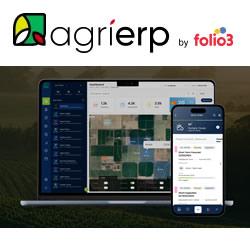Cargill expands its award-winning regenerative agriculture program to Europe
Cargill RegenConnectTM is building on two years of success in North America by expanding to France, Germany, Poland and Romania and adding nine new states across the U.S.
Cargill is leveraging its unique position in the supply chain to pioneer its award-winning regenerative agriculture program in Europe, which will see farmers in Germany, Poland, Romania, and France financially compensated to adopt climate-friendly farming practices.
Building on two years of success in North America, Cargill RegenConnectTM will also expand from 15 to 24 states, introducing the program in nine new states including North Carolina, South Carolina, Georgia, Colorado, Mississippi, Alabama, Oklahoma, Louisiana and Texas. It will also provide U.S. farmers with higher payments, cover more commodities (such as cotton) and improve ease and access to enrollment via mobile devices.
Cargill RegenConnect™ has not only received positive feedback from growers and customers but has also been recognized by the prestigious 2023 Edison Awards™ for its innovative approach to creating a more resilient and secure food system. Its expansion demonstrates Cargill's commitment to helping farmers adopt sustainable agricultural practices across its global supply chain, rooted in the firm belief that change starts where the food system begins - at the farm.
"Companies like Cargill are helping to make it economically feasible for farmers to implement sustainable practices around the world. It is how agriculture and farmers can be part of the climate solution, helping to reduce emissions, improve water quality and use, increase yields and build up the resilience of our soils for the next generation. Our vision is to make regenerative agriculture commonplace across our global supply chain, enabling farmers to produce food more sustainably while increasing their profitability and resiliency," said Chantelle Donahue, North America Agriculture Supply Chain Vice President, from Cargill.
"Cargill RegenConnect's success to date demonstrates how making sustainable, regenerative agriculture financially viable for farmers can help nature-positive production practices scale more quickly and become standard. It is one of the many ways we plan to meet our goal to reduce emissions in our supply chain and will impact every area of our business - from sourcing wheat and corn for our starches, and sweeteners to growing rapeseed oil for our salmon feed," she added.
Cargill RegenConnectTM is a voluntary, market-based regenerative agriculture program which helps farmers improve soil health and decarbonize the agriculture supply chain.
Farmers enrolled in the program can choose the practices that are best suited to their operation's unique growing conditions, which includes planting cover crops and implementing reduced- or no-till farming. These practices help sequester carbon in the ground, build soil resilience and improve water quality.
In addition to providing technical support and resources to enable farmer success, the program offers an environmental market opportunity for participants, who are then able to connect with some of the world's largest companies actively seeking to reduce their environmental footprint while supporting regenerative agriculture.
Eligible farmers in North America are invited to enroll now through Sept. 15 by visiting Cargill Regenerative Ag Program (cargillag.com)
Eligible farmers in participating EU countries are invited to enroll beginning June 1 through July 15, 2023 at regenconnect.cargill.com
Featured Product

agrierp - Your One-Stop Farm Management Software
AgriERP is an all-in-one, comprehensive farm management suite, built by the farmers for the farmers to maximize profits. Built on the powerful ERP of Microsoft Dynamics 365, AgriERP enables farming enterprises to manage every aspect of their farm from financial management, inventory management, supply chain & logistics management, crop management, operations management, resource management, to sales, contracting, & shipping - All in a centralized platform.
